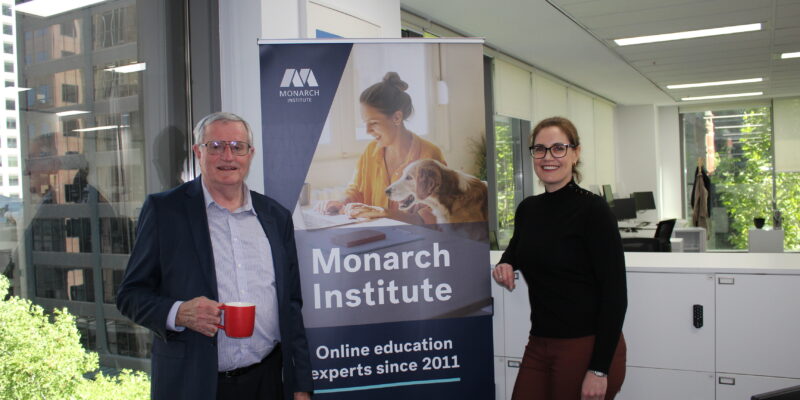Getting on top of the complex and changing property game
How future conveyancers are being equipped to handle some of the complex problems that can arise from property transactions.

SELLING a house is often the biggest financial decision a person will make and if something goes wrong, the potential for loss can be significant.
While conveyancing courses have traditionally focused on theoretical knowledge, in recent years there has been a push to better equip students with more practical skills, so they can thrive in real-world settings.
At Monarch Institute, one of the newer additions to the advanced diploma of conveyancing is property law, to help future conveyancers handle some of the complex problems that can arise from property transactions.
“Nowadays, a lot of people will buy properties at auction, which means they don’t really have a lot of opportunity to check them out beforehand,” program director Shane Watson explains.
“They also often don’t get their finances fully finalised before they bid and sometimes buyers just assume everything’s going be okay, but it’s not necessarily.
“That’s why we’re really big on trying to get the students ready to handle all the possible problems that can come up.”
Other practical scenarios students encounter include delays in finance approval, the discovery of pests during inspections or when a property is missing building permits or has undisclosed defects.
Issues such as late or crashed settlements, squatters, being gazumped on a house sale, and professional indemnity insurance claims are also covered.
“The diploma course has been going for 20 years, but in the olden days, it really wasn’t going into much detail at all as far as handling conditions on contracts, contract law, and whether someone can get out of a contract, and what happens if settlements delay,” Watson explains.
Offered remotely, the Monarch course has opened new career paths for students keen to study at their own pace. It has appealed to those seeking a new profession, new parents, or full or part time workers struggling with time commitments.
Thankfully, the future looks bright for conveyancers, with demand for the profession tipped to remain strong in line with population growth, Watson says.
And, the advent of AI is expected to speed up everything from the drafting of legal documents to risk assessment, property value predictions and trends, and fraud detection. But while it could lead to faster transactions, fewer errors and lower costs, human oversight would still be needed.
“I imagine at some stage, AI will start taking advantage of all the legal case studies and resources so you’ll be able to put together effectively a legal opinion on something very quickly, using AI,” Watson adds.
The biggest hurdle faced by newly qualified conveyancers is getting a steady stream of clients.
“They just think they’ll be able to talk to a local real estate agent and get referrals from them or a local finance broker, so we go into the nitty gritty of how to achieve that,” Watson says.
While conveyancers need a number of referrers, they need other ways to market themselves, be it paid Google ads or other social media.
Differentiating themselves from lawyers, for example by being more available, can also be a strong selling point.
“For example, the vast majority of people buying houses will buy them on a Saturday. As soon as they sign the contract, they’re going to want to see their conveyancer straight away,” Watson says.
Finally, to be a good conveyancer, good communication skills and attention to detail is paramount.
“Conveyancers need to be careful and work quickly, but not with too much haste. Mistakes can be very costly for yourself or whoever you work for and your client.”
Shane’s tips for how conveyancers can thrive:
- Position yourself as a specialist with deep expertise in property transactions
- Differentiate from lawyers by emphasising personalised service, quicker turnaround times and in-depth local market knowledge
- Be available beyond standard business hours to gain a competitive edge
- Strengthen referrer relationships by meeting referrers’ specific needs
- Improve online presence to align with how consumers search for information
Shane Watson is program director at Monarch Institute, a fully accredited education institution, offering over 50 online courses. Contact: shane@monarch.edu.au




